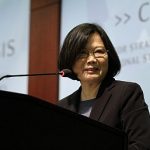The challenge for Asia’s female politicians

Asia is seeing a new wave of successful female politicians, but getting to the top requires hard choices. What a disastrous few months for women in politics. The world started 2016 with the hopes of seeing both the first female UN secretary general and first female president in the United States. Neither came to pass; instead we saw the fatal fall of the first female president in South Korea. It’s a serious blow to women in politics in Asia who had hoped to rise with modern education and changing gender roles in society. For the past decades, female politicians in Asia have gone through an evolution, from holders of hereditary power to selfmade role models for other women. Today, the secret of their success often depends on their level of education, economic independence, and support from male patrons. Whether a woman will be successful in politics is often determined by her choice of husband (or choice not to marry), her decisions regarding motherhood, and whether or not her early bosses create gender-friendly work environments. Hereditary Power for Asia’s Female Politicians. The old model saw Asia’s female politicians exclusively being the wives, daughters, or sisters of already established male politicians. These women effectively inherited power from their male family members. It’s been particularly common in Southeast Asia.

